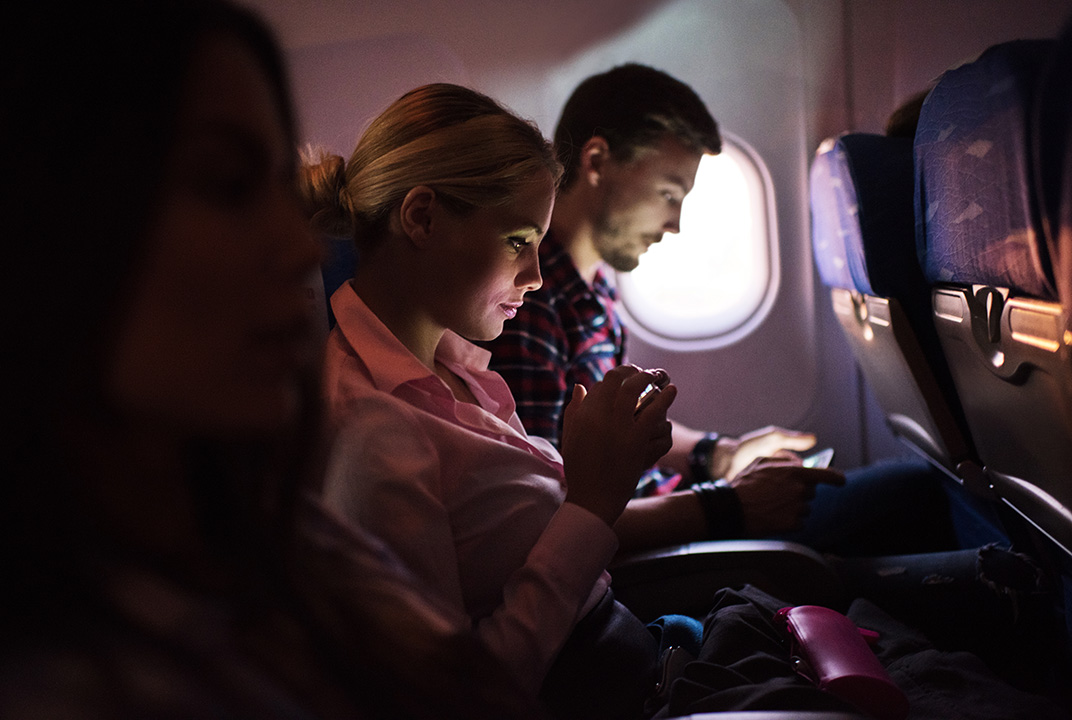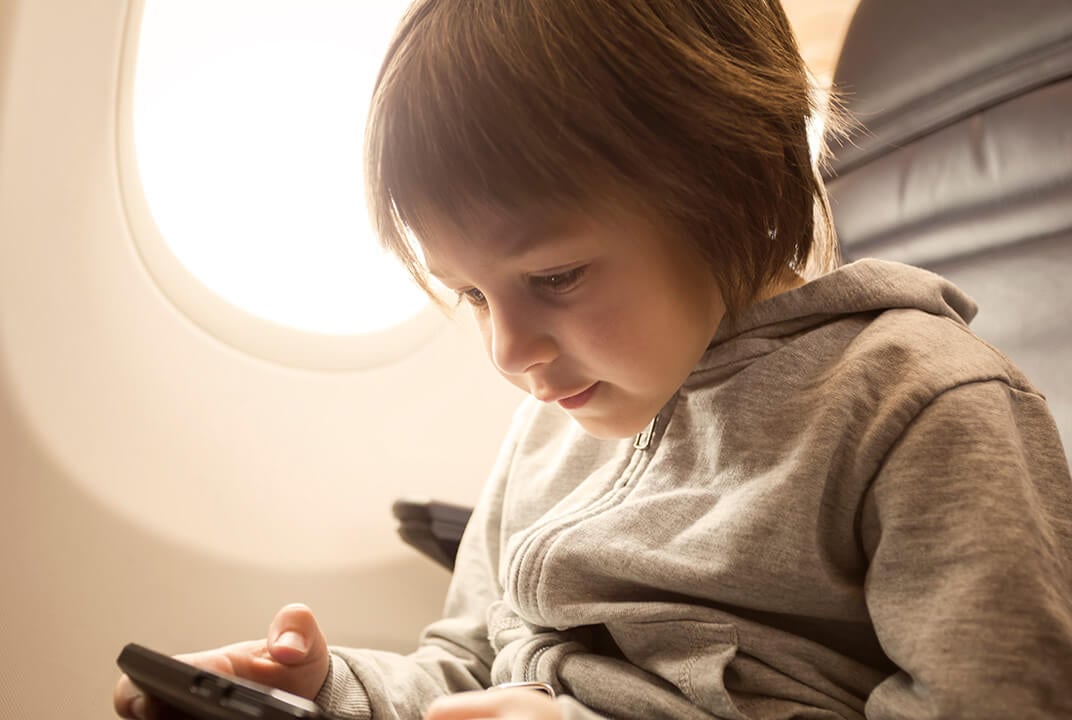Aviation leaders debate solutions to rebuild passenger confidence in industry’s largest live broadcast event
Aviation
FlightPlan, hosted by Inmarsat and APEX, featured keynote speakers from Air Canada, Air France-KLM, Boeing, CAPA, Delta, easyJet, FlightRadar, IATA, IBM, Japan Airlines, Korean Air, Microsoft, Rolls-Royce, Southwest Airlines, Virgin Atlantic and more.
The broadcast was watched by more than 3,500 viewers from across the world and included the launch of Inmarsat’s ‘Passenger Confidence Tracker’, the largest airline passenger survey since the COVID-19 pandemic began.
Leaders from across the global aviation industry came together for a live broadcast yesterday, which explored strategies to accelerate recovery and future growth in light of the COVID-19 pandemic. FlightPlan: Strategies for Recovery, hosted by Inmarsat Aviation and the Airline Passenger Experience Association (APEX), saw over 50 industry voices exchange views on the present and future of aviation.
Six months on from the hugely successful first FlightPlan broadcast event in April, with aviation still in the depths of one of its most extreme crises to date, the industry’s largest-ever virtual assembly returned to connect leaders on the digital stage once again. More than 3,500 viewers tuned in from almost 90 countries worldwide for a series of live debates, interviews and analysis.
Summarising the day’s events, Philip Balaam, President of Inmarsat Aviation, commented: “FlightPlan is a unique platform that brings together the aviation industry during this difficult time to share views, exchange best practice and strategise for the future. Yesterday’s edition attracted record audience numbers in comparison to our inaugural FlightPlan broadcast in April and we are delighted that so many leading voices participated. Together, we reflected on the challenges faced in 2020, the progress made to date, and of crucial importance, the trends that will guide the next phase of recovery.
“A wide range of initiatives have already been executed to make flying viable and safe – from an overhaul of cleaning protocols to greater social distancing across the passenger journey. Under different circumstances, many of these changes could have taken years to introduce. The next phase will delve even further into the passenger mindset, ensuring that consistent policies, measures and technologies are implemented to restore confidence in airline travel. While many hurdles still lie ahead, the single most overwhelming sentiment expressed during FlightPlan yesterday was one of optimism.”
A particular highlight of the day was the launch of Inmarsat’s ‘Passenger Confidence Tracker', the world’s largest survey of airline passengers since the pandemic began. Reflecting the views and attitudes of almost 10,000 respondents from 12 countries, it revealed that 83 per cent of air passengers expect their travel habits to change in the long-term as a result of COVID-19.
Reflecting on what the industry can take from the study in order to rebuild confidence, Niels Steenstrup, Inmarsat Aviation’s Senior Vice President of Inflight Business, told viewers: “The fundamental message is about consistency. Passengers want to be able to board a plane anywhere and be confident that the same hygiene practices are being followed. They want a consistent set of safety standards around the world, and more consistency on quarantine rules.
He continued: “Worries about flying are all too often a result of inconsistencies and lack of assurance about what they will be met with at the airport, on the plane or at the destination. Co-operation between nations will undoubtedly help restore passenger confidence.”
Agreeing with Steenstrup, Peter Harbison, Chairman of CAPA Centre for Aviation, added that “a harmonious and standardised way for looking after passengers” is needed. “The biggest problem is the unilateralism we have seen develop,” he said.
Another key theme of the day was the growing relevancy of trust and reputation. Robert Carey, Chief Commercial and Customer Officer at easyJet, said: “In an economic downturn, customers want value and a brand they can trust.” This is supported by data from the ‘Passenger Confidence Tracker’, which finds 44 per cent of passengers believe reputation is now a more significant factor when choosing an airline than it was pre-pandemic.
“Trust is super critical for any brand, but certainly for those that have a safety component like airlines,” agreed Anton Vidgen, APEX President and Air Canada Head of Brand Experience. “It was important before the pandemic and it’s especially important during the pandemic.”
There was a clear focus throughout FlightPlan on the importance of digital solutions as a short-term solution to boost confidence and safety, through reducing touchpoints and interactions throughout the journey experience.
Gustavo Nader, Thales’ Head of Strategy, IFE and Connectivity, noted a growing trend for traveller autonomy, enabled by digitisation. “Travellers are increasingly reliant on self-directed resources to get information about their travel experience,” he said. “Airports and airlines will be required to accelerate their digital transformation in a way that increases the independence of the traveller and reduces their reliance on touchpoints and interactions.”
Airline leaders echoed this, arguing that the pandemic has accelerated their digital transformation plans. Vidgen noted that Air Canada has already adopted touchless bag check and is exploring innovative technologies from biometrics to automatic gate boarding. Implementing touchless technologies throughout the journey, he believes, will ensure “that customers feel confident and can serve themselves as much as possible”.
Matt Klein, CCO of Spirit, noted another shift in passenger habits: the uptake of ancillary services. “The Spirit business model, with optionality of services, is working. There is a lot of value for guests with that and our ancillary revenue generation numbers are back where they were last year,” he stated. Research from the Passenger Confidence Tracker supports Klein’s comments, with value added services - such as extra legroom and free baggage - becoming increasingly important to passengers in 2020.[1]
Despite the deep challenges facing aviation as a result of the pandemic, FlightPlan speakers expressed positivity in how the industry has adapted at speed, and shared optimism for the recovery phase. Perry Cantarutti, SVP Alliances, Delta Air Lines, commented that “we’re learning to realise that we can’t let it [COVID-19] conquer our ability to live our lives and run our businesses, but we have to be able to do that in a safe way”. He noted that growing travel confidence in the US domestic market in particular is an “encouraging” sign.
According to Andrés Castañeda, CMO and CXO, AeroMexico, the pandemic has led the airline – and the wider industry – to identify ways to be more agile in the future. “We can change our processes and policies faster than we ever thought we could,” he said. “With COVID, we need to reimagine how we operate to bring trust back to customers. That has been a silver lining of the past eight months.”
Ben Smith, CEO of Air France-KLM reiterated this, stating: “The crisis has forced us to be more agile. It’s forced us to really try and be a step ahead of our competitors”. He ended with a note of optimism for the industry: “People have family and friends around the world. People like holidays. People have businesses. That’s not disappearing. If borders are open, they will come back.”
Whilst acknowledging that passenger habits will have changed, easyJet’s Carey shared the sentiment that the appetite for travel will not dissipate. Reflecting on the passenger of the future, he said: “Are they going to interact with us [airlines] differently? Absolutely. But the brands set up to win are going to have a really bright future.”
[1] 43% say extra legroom and 39% say free baggage is more important to the enjoyment of the flight since the pandemic
Further Information
About Inmarsat
Inmarsat is the world leader in global, mobile satellite communications. It owns and operates the world’s most diverse global portfolio of mobile telecommunications satellite networks, and holds a multi-layered, global spectrum portfolio, covering L-band, Ka-band and S-band, enabling unparalleled breadth and diversity in the solutions it provides. Inmarsat’s long-established global distribution network includes not only the world’s leading channel partners but also its own strong direct retail capabilities, enabling end to end customer service assurance.
The company has an unrivalled track record of operating the world’s most reliable global mobile satellite telecommunications networks, sustaining business and mission critical safety & operational applications for more than 40 years. It is also a major driving force behind technological innovation in mobile satellite communications, sustaining its leadership through a substantial investment and a powerful network of technology and manufacturing partners.
Inmarsat operates across a diversified portfolio of sectors with the financial resources to fund its business strategy and holds leading positions in the Maritime, Government, Aviation and Enterprise satcoms markets, operating consistently as a trusted, responsive and high-quality partner to its customers across the globe.
For further information, follow us on LinkedIn or on Twitter @InmarsatGlobal.
Contacts
Jonathan Sinnatt/ Matthew Knowles
Corporate Communications
Tel: +44 (0)20 7728 1518/1355
press@inmarsat.com
Robeel Haq
Marketing Business Partner, Inmarsat Aviation
Tel: +44 (0)20 7728 1352
robeel.haq@inmarsat.com

